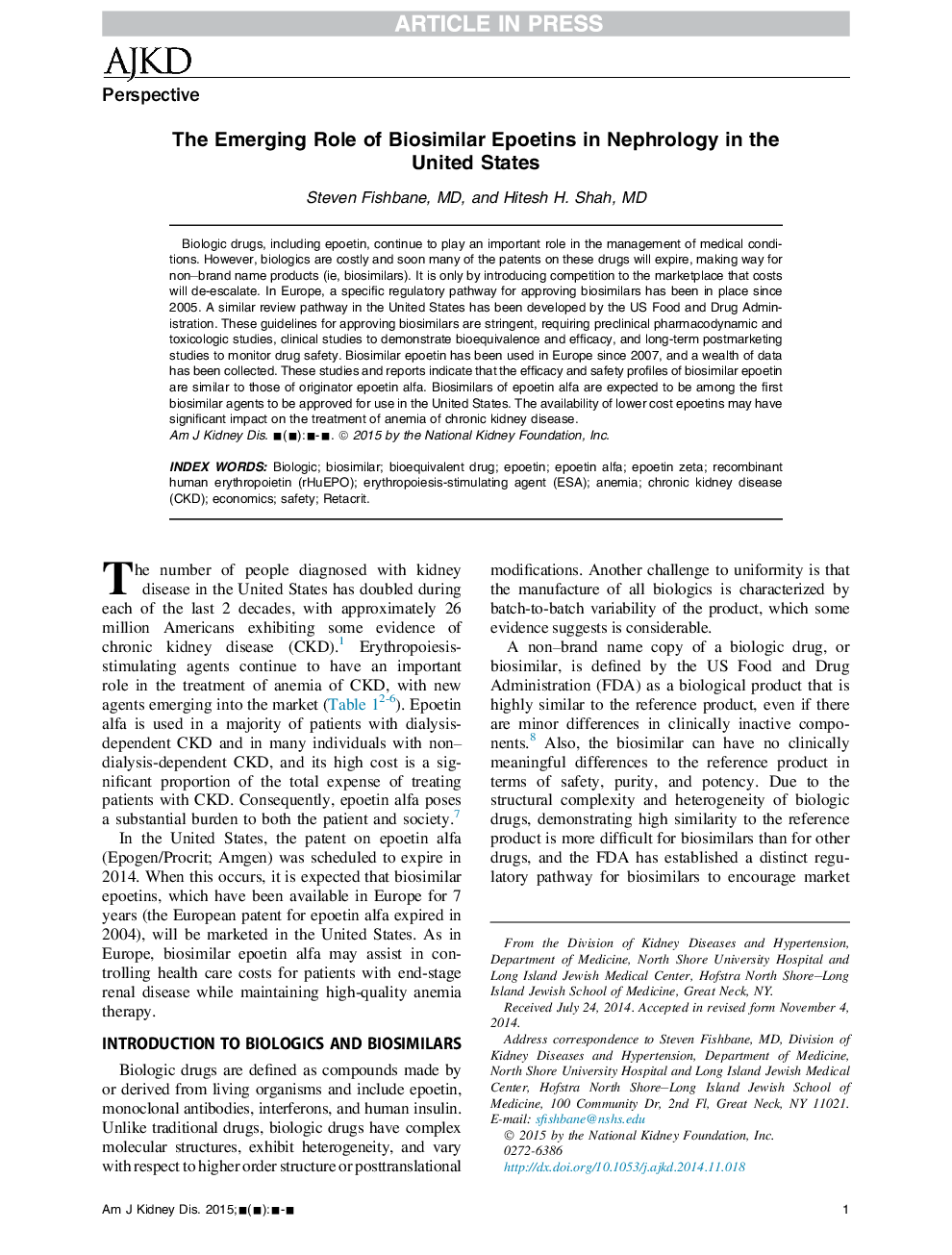| Article ID | Journal | Published Year | Pages | File Type |
|---|---|---|---|---|
| 3847477 | American Journal of Kidney Diseases | 2015 | 6 Pages |
Abstract
Biologic drugs, including epoetin, continue to play an important role in the management of medical conditions. However, biologics are costly and soon many of the patents on these drugs will expire, making way for non-brand name products (ie, biosimilars). It is only by introducing competition to the marketplace that costs will de-escalate. In Europe, a specific regulatory pathway for approving biosimilars has been in place since 2005. A similar review pathway in the United States has been developed by the US Food and Drug Administration. These guidelines for approving biosimilars are stringent, requiring preclinical pharmacodynamic and toxicologic studies, clinical studies to demonstrate bioequivalence and efficacy, and long-term postmarketing studies to monitor drug safety. Biosimilar epoetin has been used in Europe since 2007, and a wealth of data has been collected. These studies and reports indicate that the efficacy and safety profiles of biosimilar epoetin are similar to those of originator epoetin alfa. Biosimilars of epoetin alfa are expected to be among the first biosimilar agents to be approved for use in the United States. The availability of lower cost epoetins may have significant impact on the treatment of anemia of chronic kidney disease.
Keywords
Related Topics
Health Sciences
Medicine and Dentistry
Nephrology
Authors
Steven MD, Hitesh H. MD,
